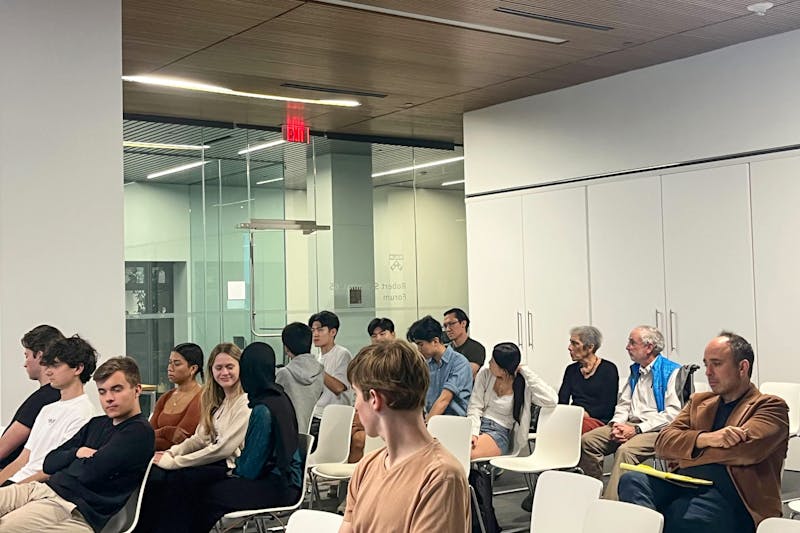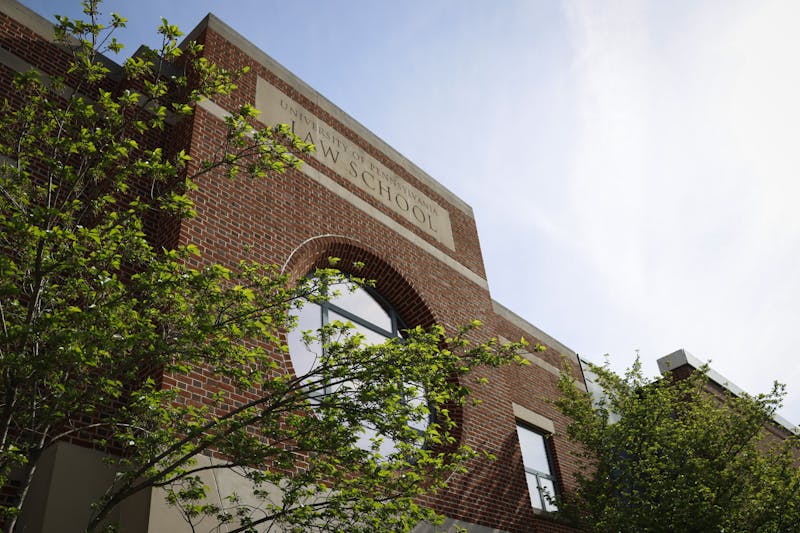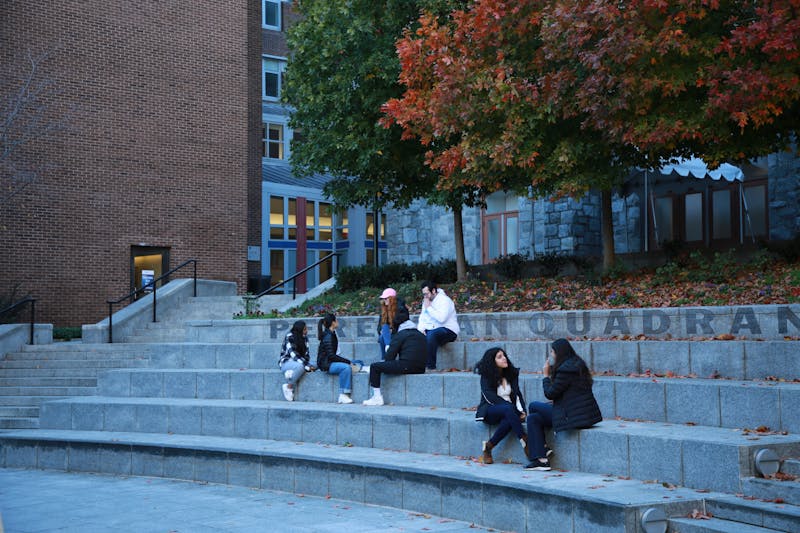
The University of Pennsylvania is failing its students. Freedom of thought, the hallmark of classical liberal education, is not only socially discouraged—it is officially prohibited by university leaders. Through public shaming and the punishment of thoughtful disagreement, our administration mandates the confession of a regressive ideology that prefers orthodox fantasies to inconvenient realities. We, as students and future global leaders, must resist Penn’s coerced conformity, knowledge suppression, and puritanical, “woke” dogma.
The recent sanctions of Professor Amy Wax present a harrowing illustration of the specter that has descended upon our institution. For decades, Wax was a highly regarded educator, receiving multiple accolades for her teaching excellence. Then, in 2017, she published an op-ed that contradicted accepted doctrine. In response, dozens of law professors signed an open letter condemning her. Wax was labeled a bigot—the scarlet letter of modern, leftist morality. Since then, her detractors have monitored her scrupulously, taking her nuanced views out of context to ceaselessly petition for her termination. Students who have never met her loathe her publicly. Last year, after one of Wax’s classes, scores of law students gathered to boo her and her pupils, film them, gesture obscenely, and chant, “Shame! Shame! Shame!” Over the years, the woke mob collected enough distasteful snippets and griped loudly enough that university leaders classified Wax’s statements as “flagrant unprofessional conduct” and sanctioned her.
To understand the absurdity of this reaction, we must first acknowledge that the central claims of Wax’s abhorred op-ed are undeniably true. She argues the obvious: “All cultures are not equal. Or at least they are not equal in preparing people to be productive in an advanced economy.” Both empirical research and anecdotal experience show that the “single-parent, antisocial habits among some working-class whites,” the “anti-‘acting white’ rap culture of inner-city blacks,” and the “anti-assimilation sentiment” among some Hispanic immigrants all contribute to a variety of negative outcomes. These cultures may have positive aspects, but they decrease educational achievement, exacerbate poverty, and weaken “a sense of solidarity and reciprocity among Americans.” Re-embracing elements of traditional, “bourgeois culture” could ameliorate the plight of the poor. Wax’s advice is simple and statistically supported: graduate high school, get a job, wait until marriage to have children, stay out of jail, and avoid drug use.
These are the heresies dozens of law professors “categorically reject[ed]” in an open letter where they offered no argument, only a vehement, self-assuring renunciation. In a separate article, five professors claimed that because bigotry was a “core feature” of the 1950s, the values of bourgeois culture can never be beneficial: “They cannot be revived today washed clean of their racist roots.” This, again, ignores the evidence which shows that adherence to bourgeois norms helps disadvantaged people, regardless of race or sex.
Amorphous, systemic oppression is not the only cause of modern disparities. Culture matters. Personal choices matter. A culture of corruption or lethargy simply will not accomplish much. Wax recognizes this and urges the consideration of differences in cultural utility. In doing so, she often makes blunt, politically incorrect statements, but her broader conclusion is that culture affects outcomes, and we should act accordingly. We may not agree with her policy recommendations, but we must be intellectually candid and admit that Wax is not espousing a “white supremacist view,” as former Law School Dean, Ted Ruger, claims. She is facing reality.
It is dishonest and dangerous to conflate a nuanced argument about culture with a belief that one race should dominate all others. When professors erroneously claim that a well-intentioned colleague is a “white supremacist,” equivalent to a neo-Nazi, they create a straw man of evil and stifle critical thinking. We are law students. We can handle subtlety and deal with ideas we find objectionable, but mislabeling Wax unnecessarily escalates emotions and divides our community.
In their response to Wax’s common sense observations about cultural productivity, the far left exudes a religious fanaticism. Spiritual doctrines are founded on revelation, not reason, so fanatics cannot respond to disagreement with coherent arguments. Instead, they use shame and excommunication to enforce ideological conformity. When Wax dissented from the leftist creed, the woke community publicly shamed her with letters, protests, and name-calling. Wax persisted. Now, the Penn administration resorts to the tenure-protected-equivalent of banishment, suspending Wax for a year, stripping her teaching title, and refusing her summer pay. Like a leper, they force her to distance herself from the University by disclaiming in all public appearances that her unclean views do not represent theirs. They hope she will just go away, so they don’t have to keep dealing with the thorny problems she highlights.
The University of Pennsylvania, like so many once great schools, is no longer an institution of higher learning. It is a mill of indoctrination. Yes, Wax says things that offend people. So what? Education is not meant to be comfortable. It is meant to lead us to truth. When universities, captured by the cult of woke, sanction unpopular ideas, they send a clear message to professors and students alike: do not step out of line, do not question the forbidden subjects, or else you too could become an Orwellian thought criminal like Professor Wax.
Academia must do better. As Penn’s founder, Benjamin Franklin, knew: “Without freedom of thought there can be no such thing as wisdom; and no such thing as public liberty, without freedom of speech.” Students must resist the siren call of social conformity. We must seek truth, even when our thought leaders prohibit it, because regurgitation of dogma cannot solve tomorrow’s problems.
MAX STAINTON is a third year graduate student studying law and philosophy. His email is stainton@penncareylaw.upenn.edu.
The Daily Pennsylvanian is an independent, student-run newspaper. Please consider making a donation to support the coverage that shapes the University. Your generosity ensures a future of strong journalism at Penn.
Donate








